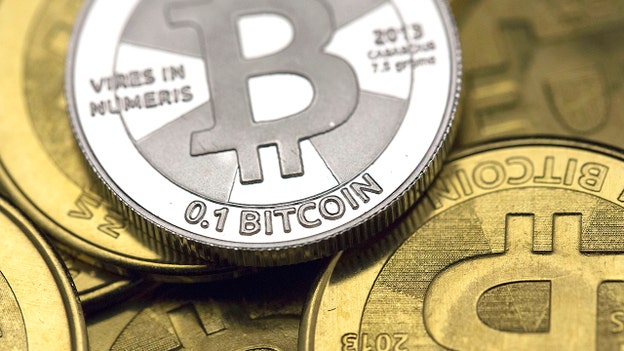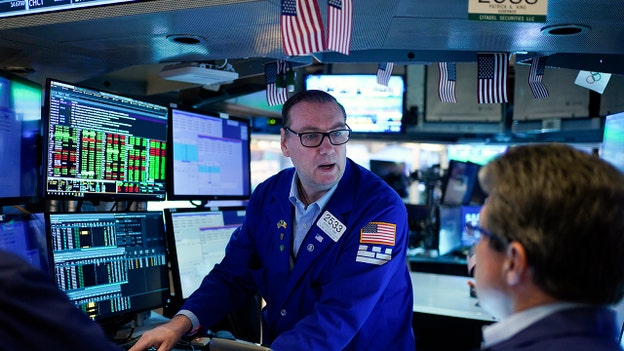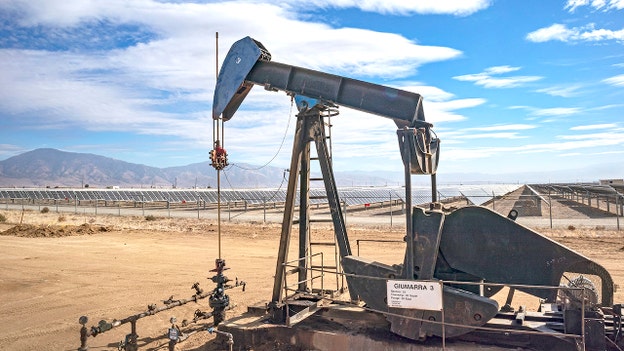Gas prices fall again, gas, oil crypto higher
FOX Business is providing real-time updates on the markets, commodities and all the most active stocks on the move.
Coverage for this event has ended.
Cryptocurrency was trading higher early Tuesday morning with Bitcoin, Ethereum and Dogecoin all making solid gains.
Bitcoin, which was trading at around $19,000 over the weekend, currently is trading at $21,230 (+2.7%), up $607, at 4:45 a.m. Tuesday. It is down for the week by 8.08% and down for the month more than 29.25%.
Ethererum is trading at approximately $1,160 (+2.44%), or up $27.65 per coin. It is down for the week by 5.66% and down for the month by more than 42%.
Dogecoin is trading at $0.0622 (+3.12%), up $0.0017. It is up for the week by nearly 13%, but down for the month by nearly 28%.
| Symbol | Price | Change | %Change |
|---|---|---|---|
| I:DJI | $29,888.78 | -38.29 | -0.13% |
| SP500 | $3,674.84 | +8.07 | +0.22% |
| I:COMP | $10,798.35 | +152.25 | +1.43% |
U.S. stocks were higher early Tuesday morning as markets will reopen in a few hours after the three-day Juneteenth holiday weekend.
The S&P 500 and Dow Jones Industrial Average on Friday wrapped up their worst weeks since 2020, with the major indexes extending whipsaw moves that have injected fresh volatility into markets.
The S&P 500 rose 8.07 points for the day, or 0.2%, to 3674.84, while the Nasdaq Composite gained 152.25 points, or 1.4%, to 10798.35. The Dow fell 38.29 points, or 0.1%, to 29888.78.All three finished the week with sharp losses.
The S&P 500 fell 5.8% for the week, its largest decline since the COVID-19 pandemic roiled markets in March 2020. The Dow fell 4.8% for the week, its biggest drop since October 2020.
The once-hot crypto market also had a crazy week, reinforcing investors' concerns that there is nowhere to hide from the current market turmoil. One of the largest crypto lending platforms, Celsius Network LLC, told customers on Sunday it was pausing all withdrawals. The anxiety spread quickly throughout the sector all week.
Meanwhile, Asian markets Asian stocks rebounded. Tokyo, Hong Kong and Sydney gained. Shanghai declined. The Nikkei 225 in Tokyo added 1.8% to 26,246.31 while the Shanghai Composite Index lost 0.8% to 3,288.12.
Hong Kong's Hang Seng advanced 1.2% to 21,420.76.
The Kospi in Seoul was 0.7% higher at 2,407.62 and Sydney's S&P-ASX 200 rose 1.3% to 6,514.80. India's Sensex opened up 1.7% at 52,460.17. New Zealand and Southeast Asian markets gained.
Investors worry efforts by U.S. and European central banks to cool inflation that is running at a four-decade high might derail global economic growth. Japan and China, two of the three biggest economies, have avoided joining in rate hikes.
On Monday, China's central bank left its benchmark rates unchanged. The Bank of Japan stuck to its policy of near-zero interest rates last week despite concern that is weakening the yen's exchange rate.
Click here for more.
The average price for a gallon of gasoline slipped again on Tuesday, remaining below the $5 threshold for a fourth straight day, according to AAA.
Gas reached $5 a gallon more than a week ago.
The price of a gallon of gaoline declined to $4.968, according to AAA.
The price on Monday fell to $4.981. That follows a drop on Sunday to $4.983. A week ago, a gallon of gasoline sold nationally for $5.016, while a month ago, the national average was $4.593. One year ago, a gallon of gasoline sold nationally for $3.071.
Meanwhile, diesel dropped incrementally to $5.812 on Tuesday, down from $5.815 on Monday.
One week ago, diesel was selling for $5.775 per gallon, while a month ago, the national average was $5.564. One year ago, the national average for a gallon of diesel was $3.225, AAA reported.
Oil prices rose on Tuesday, clawing back more of last week's losses as investors focused on tight supplies of crude and fuel products rather than concerns about a recession dampening demand going forward.
Brent crude futures rose 81 cents, or 0.7%, to $114.94 a barrel at 0703 GMT, adding to a 0.9% gain on Monday. The benchmark contract fell 7.3% last week in its first weekly fall in five.
U.S. West Texas Intermediate (WTI) crude futures for July, which expire later on Tuesday, rose to $111.19 a barrel, up $1.63, or 1.5%, from Friday's close. There was no settlement on Monday, which was a U.S. public holiday.
WTI dropped 9.2% last week. The more-active WTI contract for August was up $1.84 at $109.83 a barrel.
"Supply concerns are likely to persist in the coming months as OPEC+ countries, the world's major oil producers, may not have enough spare capacity... The summer travelling season and China easing its COVID-19 restrictions will push demand to grow further," said Leona Liu, analyst at Singapore-based DailyFX.
"Although recession fears have increasingly become a headwind for oil prices, it is estimated that we still have at least half a year to go before a real recession."
Analysts said that prices have been supported by supply anxiety after sanctions on oil shipments from Russia, the world's second-largest oil exporter, after its invasion of Ukraine and questions over how Russian output might fall due to sanctions on equipment needed for production.
"Supply concerns are unlikely to subside unless there is a resolution to the Russia-Ukraine war, or unless we see a sharp rise in supply from either U.S. or OPEC," said Madhavi Mehta, commodity research analyst at Kotak Securities.
Click here for more.
Live Coverage begins here



